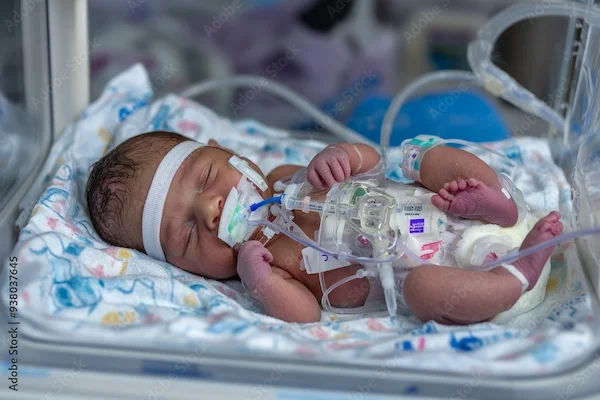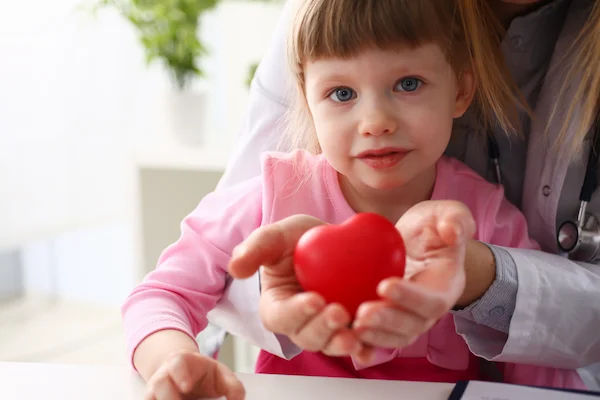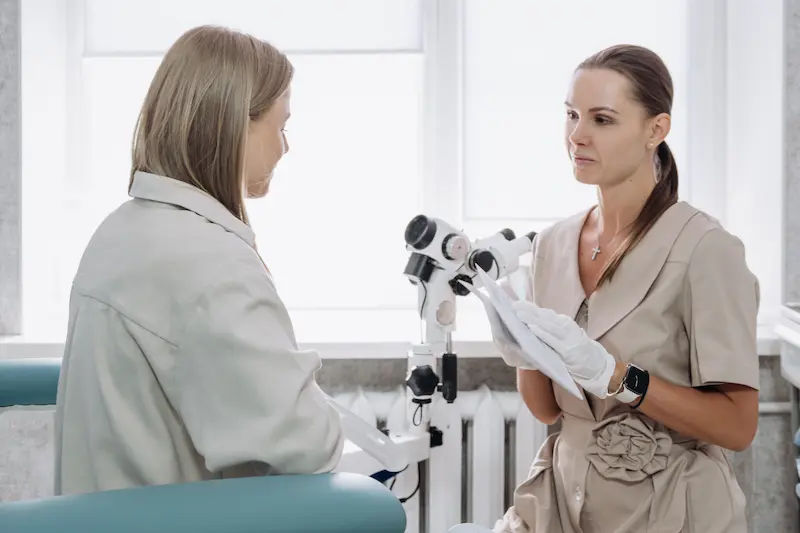Guide to Have You Got Your First Ivf Cycle Failed You Must Be Anxious And Worrying As What To Do Next
Discover practical guidance after a first IVF cycle fails. Learn how to process emotions, understand possible causes, ask the right questions, explore diagnostic tests, and prepare for your next attempt.


Introduction
The two-week wait is over, and the result is not what you hoped for. A failed first IVF cycle can feel like a profound loss, bringing a wave of sadness, frustration, and anxiety about the future. You've invested so much—emotionally, physically, and financially—and it's completely normal to feel disheartened. In this moment, it's crucial to know that you are not alone, and this outcome is not a reflection of your worth or your ultimate chances of building a family. Many successful IVF journeys include a first attempt that did not go as planned. This guide is designed to walk you through the emotional and practical next steps, helping you move from a place of worry to a place of empowered action. We’ll cover how to process your feelings, what to discuss with your doctor, the potential reasons behind the cycle's outcome, and strategies to increase your odds of success moving forward.
Acknowledging the Emotional Rollercoaster
Before diving into medical details, it is essential to address the emotional impact. A negative IVF result is a real grief experience. Allowing yourself to feel this fully is the first step towards healing and preparing for what comes next.
It’s Okay Not to Be Okay: Giving Yourself Permission to Grieve
Society often pressures us to "stay positive," but suppressing your emotions can be counterproductive. Allow yourself to feel the sadness, anger, and disappointment. Talk to your partner, a trusted friend, or a therapist specialising in fertility issues. Joining a support group, either in person or online, can connect you with people who truly understand what you are going through. This validation is a powerful tool for coping with the emotional toll of a failed IVF cycle.
You Are Not a Failure: Understanding the Statistics
It is vital to reframe this experience. A failed cycle is a data point, not a final verdict. According to the Society for Assisted Reproductive Technology (SART), for women under 35, the live birth rate per IVF cycle started is around 55%. This means even with the best odds, success is not guaranteed on the first try. For many, the first cycle serves as a diagnostic tool, providing the doctor with crucial information about how your body responds to medication, egg quality, and fertilisation. This data is invaluable for tailoring a more effective protocol for a subsequent attempt.
Consult Top Doctors for Personalised Advice
The Crucial "What Now?" Conversation with Your Doctor
Once you have given yourself some space to process, the next critical step is to schedule a follow-up appointment with your fertility specialist. This is often informally called a "WTF" (What The Fetus) meeting. The goal is to review the cycle in detail and create a new plan.
Preparing for Your Follow-Up Appointment (The "WTF" Meeting)
Go into this appointment prepared. Gather your cycle records, including medication dosages, monitoring results
(follicle sizes, oestrogen levels), egg retrieval numbers, fertilisation reports, embryo grading, and details of the transfer. Having this information at hand will help you have a productive conversation. This is your opportunity to be an active participant in your care.
Key Questions to Ask Your Fertility Specialist
To get the most out of your appointment, consider asking these questions:
- Based on this cycle, what do you think was the most likely reason for it not working?
- Can we review the embryo quality in detail? Were any embryos suitable for biopsy or freezing?
- Would you change my medication protocol for a second cycle? If so, how and why?
- What additional diagnostic tests after a failed IVF cycle should we consider before trying again?
- What is our plan for the next cycle, and how will it be different?
Investigating the "Why": Common Reasons a First IVF Cycle Fails
Understanding the potential reasons for implantation failure can help you and your doctor decide on the best path
forward. Often, it is a combination of factors.
Embryo Quality and Chromosomal Factors
The most common reason an IVF cycle fails is that the embryo stops developing or has chromosomal abnormalities that prevent implantation or cause a very early miscarriage. These abnormalities become more frequent with maternal age but can occur at any age. Even if an embryo looks perfect under a microscope, it may have underlying genetic issues.
Uterine Receptivity and Implantation Failure
Sometimes the embryo is healthy, but the uterine lining (endometrium) is not receptive at the time of transfer. The lining may be too thin, or there might be underlying issues such as polyps, fibroids, scar tissue (Asherman’s syndrome), or chronic endometritis (inflammation). The window of implantation, the short time when the uterus is ready to accept an embryo, might also be displaced for some individuals.
Sperm-Related Factors Often Overlooked
While IVF can overcome many sperm issues, sperm quality can still impact embryo development. DNA fragmentation in sperm is a factor that standard semen analysis does not measure. High levels of fragmentation can lead to poor embryo quality and failed implantation.
Potential Next Steps and Diagnostic Tests
If the reason for the failure is not clear, your doctor might recommend further testing before embarking on another
cycle.
Advanced Embryo Screening: PGT-A
Preimplantation Genetic Testing for Aneuploidy (PGT-A) screens embryos for chromosomal abnormalities.
Transferring a euploid (chromosomally normal) embryo can significantly increase implantation rates and reduce the risk of miscarriage, especially for women over 35 or those with a history of pregnancy loss.
The Endometrial Receptivity Array (ERA) Test
An ERA test is a biopsy of the uterine lining to determine if the "window of implantation" is open at the standard time. If the test shows you are pre-receptive or post-receptive, your doctor can adjust the timing of progesterone exposure before a frozen embryo transfer, creating a personalised transfer window.
Investigating Hidden Issues: Hysteroscopy and Immune Testing
A hysteroscopy allows your doctor to look inside the uterus with a tiny camera to identify and remove any polyps,
fibroids, or scar tissue that might have been missed on an ultrasound. In some cases of repeated failure, immune testing for IVF failure may be discussed, though this is a more controversial and less standardised area. It is important to have a detailed conversation with your doctor about the evidence behind any immune testing or treatments. If your doctor suspects an underlying infection or complex uterine issue, they may recommend a specialist consultation. You can book a physical visit to a leading gynaecologist with Apollo24|7 to discuss these findings and get a second opinion.
Strengthening Your Foundation for Round Two
While medical interventions are key, optimising your overall health can create a better environment for success.
Lifestyle Tweaks: Nutrition, Sleep, and Stress Management
Focus on a Mediterranean-style diet rich in antioxidants, healthy fats, and lean proteins. Prioritise 7-8 hours of quality sleep per night, as sleep is crucial for hormonal regulation. While it is impossible to eliminate stress, incorporating mindfulness, yoga, or gentle exercise can help manage its impact. Preparing for a second IVF cycle is as much about mental preparation as physical.
The Role of Supplements: CoQ10, Vitamin D, and More
Certain supplements may improve egg and sperm quality. Coenzyme Q10 (CoQ10) is a powerful antioxidant shown to support mitochondrial function in eggs. Vitamin D deficiency has been linked to lower IVF success rates, so it is wise to have your levels checked. Apollo24|7 offers convenient home collection for tests like vitamin D, making it easy to monitor your levels. Always consult your doctor before starting any new supplement regimen.
Knowing When to Consider a Second Opinion
If you feel your questions are not being answered, your treatment plan is not being adjusted, or you have lost confidence in your clinic, seeking a second opinion is a reasonable and common step. A fresh perspective from another qualified fertility specialist can provide new insights, confirm your current plan, or offer alternative protocols. Trust your instincts—you are your own best advocate.
Conclusion: Finding Hope and Building Resilience
A failed first IVF cycle is a challenging setback, but it is far from the end of your journey. Use this experience as a
stepping stone. Allow yourself to grieve, then channel your energy into becoming an informed and proactive partner in your care. The information gathered from your first cycle is invaluable. By thoroughly reviewing the outcomes with your doctor, considering targeted diagnostic tests, and focusing on your overall well-being, you can develop a more refined and personalised strategy for your next attempt. Remember, resilience is built through adversity. Many families are built on the foundation of a first cycle that did not succeed but provided the crucial knowledge needed to ultimately achieve success. Stay connected to your support system, communicate openly with your medical team, and hold onto hope.
Consult Top Fertility Specialists
Consult Top Fertility Specialists

Dr. Pradeep Champawat
Urologist
10 Years • MBBS, MS, DNB Urology
Delhi
Apollo Hospitals Indraprastha, Delhi
(175+ Patients)

Dr Abdul Basith
Infertility Specialist
15 Years • MBBS & MD (OG) & MRCOG in UK & PD-FRM
Chennai
Apollo Women Hospitals Thousand Lights, Chennai
(25+ Patients)

Dr. Sreeparna Roy
Obstetrician and Gynaecologist
8 Years • MBBS , MS (OBSTETRICS & GYNAECOLOGY), Fellowship in Infertility, Endoscopy & Ultrasonography), Fellowship in Laparoscopy & Hysteroscopy,DRM
Kolkata
Dr Utsa Basu Clinic, Kolkata
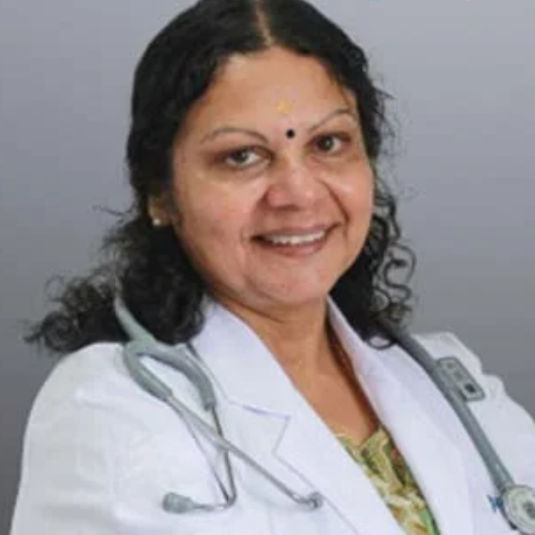
Dr. Dershana P Rajaram
Obstetrician and Gynaecologist
35 Years • MBBS, DGO
Bangalore
Apollo Clinic Bellandur, Bangalore
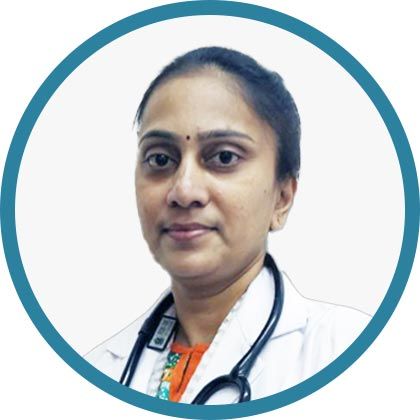
Dr. Jyothi Rajesh
Obstetrician and Gynaecologist
22 Years • MBBS, DGO(DNB)
Bangalore
Apollo Clinic Bellandur, Bangalore
Consult Top Doctors for Personalised Advice

Dr. Pradeep Champawat
Urologist
10 Years • MBBS, MS, DNB Urology
Delhi
Apollo Hospitals Indraprastha, Delhi
(175+ Patients)

Dr Abdul Basith
Infertility Specialist
15 Years • MBBS & MD (OG) & MRCOG in UK & PD-FRM
Chennai
Apollo Women Hospitals Thousand Lights, Chennai
(25+ Patients)

Dr. Sreeparna Roy
Obstetrician and Gynaecologist
8 Years • MBBS , MS (OBSTETRICS & GYNAECOLOGY), Fellowship in Infertility, Endoscopy & Ultrasonography), Fellowship in Laparoscopy & Hysteroscopy,DRM
Kolkata
Dr Utsa Basu Clinic, Kolkata

Dr. Dershana P Rajaram
Obstetrician and Gynaecologist
35 Years • MBBS, DGO
Bangalore
Apollo Clinic Bellandur, Bangalore

Dr. Jyothi Rajesh
Obstetrician and Gynaecologist
22 Years • MBBS, DGO(DNB)
Bangalore
Apollo Clinic Bellandur, Bangalore
More articles from pregnancy
Frequently Asked Questions
Q1. How long should I wait before trying a second IVF cycle?
Medically, you can often start another cycle after one or two normal menstrual periods. This allows your body and ovaries to recover. Emotionally, wait until you feel ready to handle the process again.
Q2. Are success rates higher for a second IVF cycle?
Yes, for many patients, success rates can improve with a second cycle. The first cycle provides data that allows doctors to optimise the protocol, adjusting medication dosages and potentially adding tests like PGT-A to select the best embryo.
Q3. What is the most common reason for IVF failure?
The most common reason is chromosomal abnormalities in the embryo, which prevent implantation or cause very early miscarriage. This is why embryo quality is such a critical factor.
Q4. Should I change clinics after a failed cycle?
Not necessarily. If you have a good relationship with your doctor and they propose a logical, adjusted plan, staying might be best. However, if you feel your concerns are dismissed or the plan is not clear, a second opinion can be beneficial.
Q5. Can lifestyle changes really make a difference after one failed IVF?
While lifestyle changes are unlikely to override significant medical issues, they can create a more optimal environment for implantation and pregnancy. Improving egg and sperm quality through diet, supplements, and reducing toxins can positively impact embryo health.
